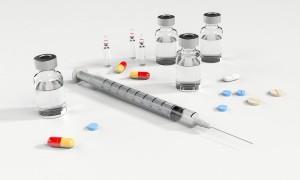Almost everyone has been affected by substance abuse by the time that they reach adulthood. Some have experienced this widely spreading problem directly, while others have been engaged with this issue indirectly. It can be very difficult to admit that someone you care about has been using drugs or drinking more than is good for him or her. It also isn’t easy to admit if you are that “someone.” The shame and unease that comes along with discussing the issue often lead to enabling behaviors, which can prevent an individual from seeking treatment for his or her addiction.
It can be difficult identifying whether a person is addicted versus experimenting with a substance. Many people do not know what signs to look for to identify whether someone is under the influence. Other times, behavioral symptoms are blamed on puberty, hormones, psychological disorders, or other reasons. Knowing the signs and symptoms of addiction can help you identify it in yourself and your loved one and give you the chance to seek out addiction treatment before the problem escalates.
Signs of Addiction
Nine signs of someone suffering from an active addiction include:N

- Missing school or work: He or she may leave early, get to the destination late, or not show up at all.
- Pulling away from others: The person may act more secretive. One may switch friends abruptly or suddenly seem to have a lack of social life. Others may go out more often as the substances may help them combat shyness. The substances can begin to become a user’s best friend as addiction progresses.
- Hygiene changes: Less frequent bathing, brushing of teeth, changing of clothes, makeup use, or deodorant use may be noted.
- Lack of interest in sports, hobbies, or other activities: Just as a substance may replace individuals in the life of a person suffering from substance abuse difficulties, the said substance tends to also become that person’s only hobby. A lot of energy is exerted finding, hiding, taking, and pretending one isn’t using a substance.
- Changing Mood: This one is very easy to blame on puberty, but that may not always be the true cause. The person may appear anxious or paranoid. An individual may gain more energy, demonstrate anger outbursts, have mood swings, or become irritable. Fights may even erupt.
- Pupil/sclera changes: Some substances dilate pupils, while others make pupils appear to be pinpoint. Red coloring within one’s sclera, the white of the eye, is another indication that one may be under the influence.
- Changes in appetite or sleep: These alterations may be increase or decreases in time one spends in bed and amounts that they are eating. An increase or decrease in the amount someone eats or sleeps can be a sign of alcohol or drug abuse and may suggest an addiction to these substances.
- Legal problems: Problems in the legal realm may be linked directly to the use or distribution of a substance. They may also be related to behaviors one engages in while under the influence.
- Financial troubles: Drugs and alcohol can be expensive. Once one is lost in the throes of addiction, they’re less likely to care about the cost, even if it makes it impossible to pay rent, buy groceries, and maintain their normal lifestyle.
Where to Turn When Substance Use Becomes an Issue
Few people know what to do when they suspect their loved one is addicted. The changes they see can be difficult to deal with and even harder to understand. However, treatment for drug and alcohol addiction is available. Whether you are looking for an alcohol addiction program, a cannabis addition program, or an opioid addiction program in Tennessee, Our trained professionals at Discovery Place are ready to help you today. We have everything from a 30-day residential program to continuing care for recovery. Give us a call at 1-800-725-0922 to help your loved one experience a sober and improved life.

